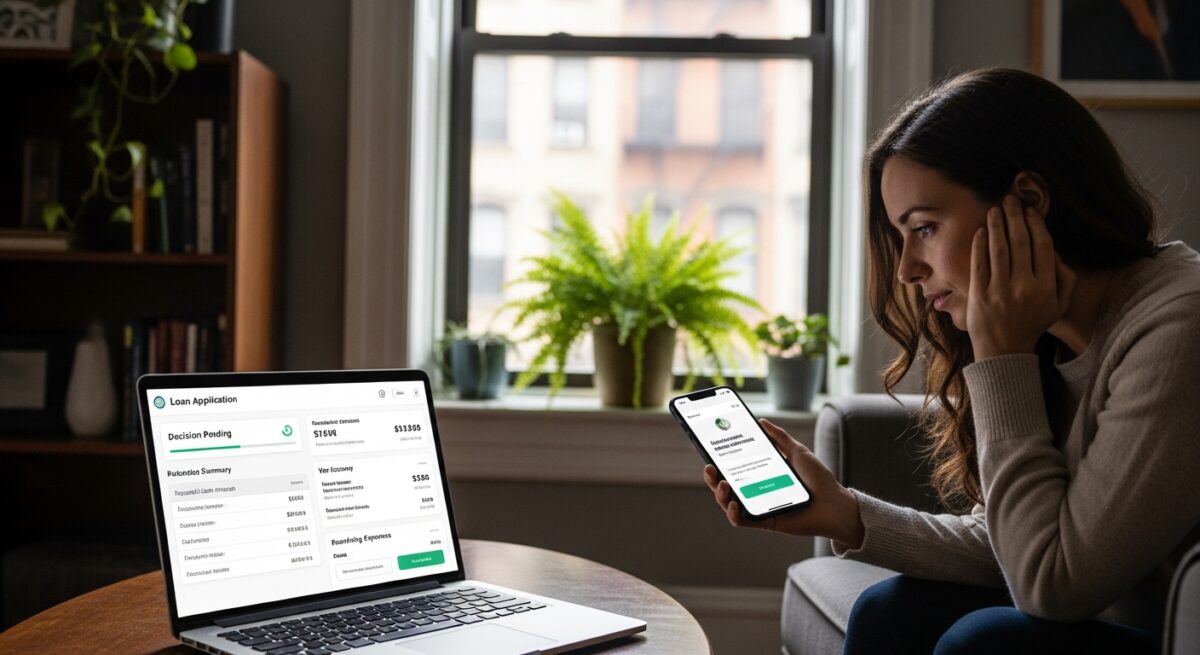The Trusted Choice for Cash Loans
Request Your Cash Advance or Personal Loan Now
The Trusted Choice for Cash Loans
Submit your information today!
Get lender-approved in as fast as 5 min!
Receive a decision as soon as the next business day!
Fast Funding
Get money as soon as the next business day



Loan Prepayment Penalty Explained: What You Should Know
Loan Prepayment Penalty Explained
Taking a loan can help during tough times. But repaying a loan takes time and money. Some people want to pay off their loans early. This is called loan prepayment. But there is a catch. Some lenders charge a prepayment penalty. This extra cost can surprise you. In this article, we will explain everything about loan prepayment penalties. We’ll use simple words and short sentences so everyone can understand.
Looking for fast and reliable personal loans? Visit ExpressCash to get started today!
What Is Loan Prepayment?
Loan prepayment means paying off your loan before the full term ends. If you have extra money, you may want to pay off your loan early. This helps you save on interest. You also get free from debt faster. There are two types of prepayments:
-
Part Prepayment – You pay a part of the loan before the due date.
-
Full Prepayment – You pay the full outstanding loan early.
What Is a Loan Prepayment Penalty?
A loan prepayment penalty is a fee you pay if you pay off the loan early. Not all loans have this. But some lenders add it in the loan agreement. It is a way for them to recover the lost interest. The lender earns interest over time. If you end the loan early, they lose money. So they charge a fee.
Why Do Lenders Charge a Prepayment Penalty?
Lenders make money through interest. When you repay early, they lose future interest. To protect their earnings, they add a prepayment clause. This fee discourages early repayment. It also helps lenders recover their cost of lending.
How Much Is the Prepayment Penalty?
The prepayment penalty depends on the loan and lender. It is often a percentage of the loan amount. Some lenders charge:
-
2% to 5% of the outstanding loan
-
A few months’ worth of interest
-
A flat fee
Always check your loan agreement. The fee details are mentioned there.
When Does It Apply?
Prepayment penalties may apply in these cases:
-
If you pay the loan within the first few months
-
If you pay a large part of the loan early
-
If your loan is not a floating rate loan
-
If it is a personal, car, or business loan
In some countries, housing loans may not have this penalty if they are at floating rates.
Example of Prepayment Penalty
Let’s say you took a personal loan of $10,000. You plan to repay the full loan in the 2nd year. The lender charges a 4% penalty. Your outstanding loan amount is $6,000. The prepayment penalty would be:
4% of $6,000 = $240
You will need to pay $6,240 to close the loan.
Need cash for unexpected expenses? ExpressCash offers quick and easy personal loans tailored to your needs.
Types of Loans with Prepayment Penalties
1. Personal Loans – Often come with penalties if you prepay early.
2. Car Loans – Some banks charge fees for early repayment.
3. Business Loans – May have flexible or fixed terms with charges.
4. Home Loans – Usually no penalty if on floating rates. Fixed rate home loans may have charges.
5. Student Loans – Some private lenders may add penalties. Federal student loans usually don’t.
Loans Without Prepayment Penalties
Some lenders offer no prepayment penalty loans. These loans allow you to repay early without fees. Always ask your lender before signing. Many online lenders today offer flexible repayment.
How to Know If There Is a Penalty
Check your loan agreement. Look for the section on prepayment or foreclosure. Terms to look for:
-
Prepayment fee
-
Foreclosure charges
-
Early settlement fee
-
Closing cost
If you don’t understand the terms, ask your lender or read the FAQs.
Also Read: Loan Repayment Strategies That Help You Save Money
When Does Prepayment Make Sense?
Prepaying makes sense when:
-
You have a high-interest loan
-
You got a bonus or extra income
-
You want to reduce total interest
-
You want to improve your credit score
-
You want freedom from debt
Even if there is a penalty, it may still be worth it. Let’s understand how.
Prepayment vs Interest Savings
Say your loan interest is 15%. The prepayment penalty is 3%. If you prepay, you avoid paying more interest. If the interest you save is more than the penalty, it’s a good deal.
For example:
-
Outstanding loan: $5,000
-
Remaining interest: $1,200
-
Penalty: 3% of $5,000 = $150
You save $1,200 in interest but pay $150 as penalty. You still save $1,050.
How to Avoid a Prepayment Penalty
1. Choose the Right Loan – Look for loans with zero or low prepayment charges.
2. Read the Fine Print – Check the loan documents before signing.
3. Ask Questions – Talk to the loan officer and clarify terms.
4. Negotiate – Some lenders may agree to reduce or waive the fee.
5. Wait for the Lock-in Period – Some loans have a lock-in period. Prepay after this time to avoid charges.
Benefits of Prepaying Your Loan
Even with a penalty, prepaying has many benefits:
-
You save on interest
-
You reduce your debt burden
-
Your credit score improves
-
You feel financially free
-
You avoid future EMI stress
When Not to Prepay a Loan
Prepaying is not always a good idea. Avoid it if:
-
The penalty is too high
-
You will have no savings left
-
Your investment returns are higher than the interest
-
You may need that money soon
It is better to invest extra money if it can earn more than the loan interest rate.
How to Prepay a Loan
Step 1 – Check your loan balance and penalty amount
Step 2 – Contact the lender for the total payable amount
Step 3 – Arrange funds from savings or extra income
Step 4 – Make the payment and get a receipt
Step 5 – Ask for a loan closure letter and no-dues certificate
Always get written proof that your loan is fully paid.
Effect on Credit Score
Prepaying a loan does not hurt your credit score. It can actually improve it. It shows lenders that you are responsible. But closing a loan early may slightly reduce your credit mix. Still, it’s better than missing payments or defaulting.
FAQs on Loan Prepayment Penalty
1. Is prepayment penalty legal?
Yes, if it is clearly mentioned in the loan agreement.
2. Do all loans have a prepayment fee?
No. Some loans, like floating rate home loans, don’t have this fee.
3. Can I avoid the penalty?
Yes, by choosing the right lender or prepaying after the lock-in period.
4. Should I prepay my loan if there is a penalty?
Only if your interest savings are more than the penalty.
5. Will my EMI reduce if I prepay part of the loan?
Yes, you can ask the lender to lower your EMI or reduce the loan term.
6. Is it better to invest or prepay a loan?
If your investment return is higher than the loan interest, invest. If not, prepay.
7. Can I prepay a loan online?
Many banks and lenders allow online prepayment through net banking.
8. How often can I prepay?
It depends on the lender. Some allow anytime, others limit it.
9. Will I get a refund if I overpay?
Yes, lenders must refund the extra amount after adjusting dues.
10. Do personal loans always have a prepayment fee?
Not always. Some lenders offer personal loans with no penalty.
Conclusion
Loan prepayment can be a great way to save money and become debt-free early. But many people are not aware of the prepayment penalty. This fee can affect your savings. Before prepaying your loan, always check the terms. Compare the interest saved with the penalty. If the savings are more, go ahead and prepay. If not, wait for a better time. At ExpressCash, we help you make smart loan decisions. Our loans come with clear terms and flexible repayment options. Whether you want to prepay, increase your EMI, or get a new loan, we are here to help.
Don’t wait! Apply for a personal loan through ExpressCash and get the funds you need fast.
🔗Explore our website, AdvanceCash, to apply for a loan, or contact our customer service team today to learn more about how we can assist you.







